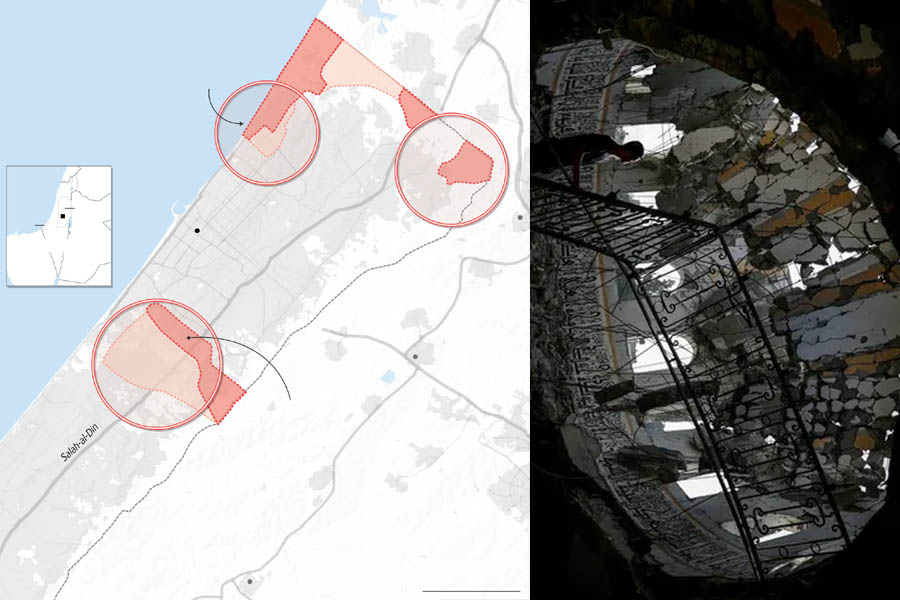
Amidst the ongoing conflict between Israel and Hamas in the Gaza Strip, reports suggest that Israel is considering a drastic measure to disable Hamas's extensive tunnel network – flooding them with seawater. While this tactic could potentially drive out Hamas fighters from their underground hideouts, it raises significant concerns about the potential damage to Gaza's freshwater supply and infrastructure.
The Plan and Its Implications
The Israel Defense Forces (IDF) have reportedly assembled large seawater pumps approximately one mile north of the Al-Shati refugee camp, capable of drawing water from the Mediterranean Sea and flooding the extensive network of Hamas tunnels. The plan involves using at least five pumps to move thousands of cubic meters of water per hour into the tunnels, potentially disabling them within weeks.
The Concerns
The flooding plan has sparked deliberations not only within Israel but also in discussions with U.S. officials. While the tactic could force Hamas fighters to evacuate the tunnels, concerns have been raised about its potential impact on the environment and the already precarious humanitarian situation in Gaza.
The U.S. Perspective
The United States has been informed of Israel's consideration of this plan, leading to mixed sentiments among U.S. officials. Some express private concerns about the potential humanitarian fallout, while others support the goal of disabling the tunnels. The decision to move forward with the plan remains uncertain, emphasizing the delicate balance between military objectives and international pressure to protect civilians.
Operational Challenges
The feasibility of the plan faces operational challenges, as the intricate details of the tunnels and the surrounding ground are unknown. The effectiveness of pumping seawater into tunnels that have not been explored before raises uncertainties about its success.
Environmental and Humanitarian Impact
Flooding the tunnels with seawater could have far-reaching consequences on Gaza's already compromised water and sanitation systems. With most Gazans lacking access to clean water and purification plants disabled, the potential damage to groundwater reserves and soil remains a significant concern. Additionally, hazardous substances stored in the tunnels could pose environmental risks.
International Response
The international community has been closely watching the developments, with former U.S. officials acknowledging discussions between Israel and the U.S. regarding the flooding plan. While recognizing the potential diplomatic challenges, some argue that it is one of the few effective options to permanently disable the extensive Hamas tunnel system.
The deliberations over the controversial plan to flood Gaza's tunnels highlight the complex decisions faced by Israel in its military campaign. Balancing military objectives with humanitarian considerations remains a formidable challenge. As the situation unfolds, the world watches closely, mindful of the potential impact on Gaza's civilian population and the broader implications for regional stability.